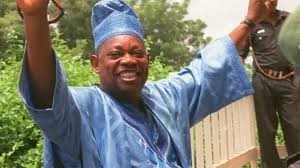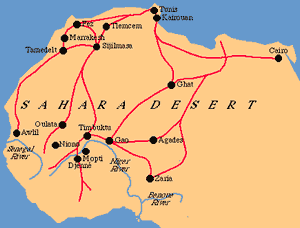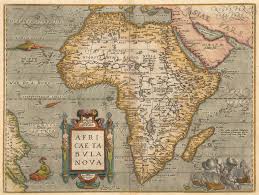MKO Abiola and the June 12 Election That Changed Nigerian Democracy

MKO Abiola and the June 12 Election That Changed Nigerian Democracy
Uncover the impact of MKO Abiola and the June 12 election, a pivotal moment in Nigeria’s democratic journey that continues to influence the nation’s politics today.
Moshood Kashimawo Olawale (MKO) Abiola is a name that resonates deeply in Nigeria’s history. A successful businessman, philanthropist, and politician, Abiola remains one of the most influential figures in the struggle for democracy in Nigeria. His victory in the June 12, 1993, presidential election, which was annulled by the military government, set off a chain of events that eventually led to his tragic death. Despite the controversy surrounding his demise, his legacy continues to inspire movements for democracy and good governance in Nigeria.
Early Life and Rise to Success
Born on August 24, 1937, in Abeokuta, Ogun State, MKO Abiola was raised in a humble background. His father, Salawu, was a cocoa trader, and his mother, Suliat Wuraola, traded in kola nuts. Abiola was named Kashimawo, meaning “Let us wait and see,” because he was the only surviving child out of his father’s 23 children.
Despite financial struggles, Abiola displayed a strong work ethic from a young age. He sold firewood and performed in a local band to support his family. His academic excellence earned him a scholarship to study at the University of Glasgow, where he became a chartered accountant. Upon returning to Nigeria, he worked in various financial institutions, ultimately rising to prominence as the chairman of the Nigerian subsidiary of ITT Corporation. His business empire expanded into publishing, banking, and telecommunications, solidifying his reputation as a successful entrepreneur.
The Philanthropist and Political Aspirant
Abiola was widely known for his generosity. He funded numerous schools, hospitals, and scholarship programs across Nigeria and Africa. His philanthropy, coupled with his business success, earned him widespread admiration and influence. He was conferred with over 197 traditional titles, including the prestigious Aare Ona Kakanfo (the Generalissimo of the Yoruba people), making him one of the most respected figures in Nigeria.
Despite his strong connections with the military elite, Abiola had a vision for a democratic Nigeria. When the opportunity arose in 1993, he contested under the Social Democratic Party (SDP) with a clear vision of national unity, using the slogan “Hope ‘93” and promising “Farewell to Poverty.” His campaign gained unprecedented support across ethnic and religious lines.
June 12, 1993: The Stolen Victory
The presidential election of June 12, 1993, is regarded as the freest and fairest election in Nigeria’s history. Abiola won in a landslide victory, even defeating his opponent Bashir Tofa in his home state of Kano. His appeal across Nigeria was remarkable, as he was able to unite both Christians and Muslims under his candidacy.
However, before the official results could be announced, the military government under General Ibrahim Babangida annulled the election, citing electoral irregularities. The decision sparked national outrage, leading to protests and political instability. Babangida was forced to step down, handing over power to an interim government led by Chief Ernest Shonekan. This government was short-lived, as General Sani Abacha seized power in November 1993.
Arrest and Imprisonment
Abiola, believing in the legitimacy of his mandate, declared himself the rightful president on June 11, 1994. In response, Abacha’s military government arrested him and charged him with treason. He was detained for four years under harsh conditions, spending much of his time in solitary confinement.
During this period, his wife, Kudirat Abiola, became the face of the struggle, rallying local and international support for her husband’s release. Tragically, she was assassinated in 1996 under suspicious circumstances, further intensifying calls for justice and democracy.
A Mysterious Death
On July 7, 1998, just days after General Abacha’s sudden death, Abiola was scheduled to be released. He had a meeting with a U.S. delegation that included Susan Rice and Thomas Pickering. During the meeting, he reportedly suffered a heart attack and died. His sudden death fueled numerous conspiracy theories, with many believing he was poisoned to prevent him from reclaiming his mandate.
An autopsy later revealed that he had died of natural causes, but doubts remain, as many saw his death as too coincidental given the political situation at the time.
Legacy and Recognition
Despite his tragic end, Abiola’s legacy lives on. His sacrifice paved the way for the return of democracy in Nigeria in 1999. In recognition of his contributions, the Nigerian government posthumously awarded him the Grand Commander of the Federal Republic (GCFR) in 2018, an honor reserved for presidents. The same year, President Muhammadu Buhari declared June 12 as Nigeria’s official Democracy Day.
Today, institutions such as Moshood Abiola Polytechnic and MKO Abiola Stadium bear his name, serving as lasting reminders of his impact on Nigerian history.
Conclusion
MKO Abiola remains a symbol of democracy and the fight for justice in Nigeria. His unwavering belief in the people’s right to choose their leaders cost him his life, but his sacrifice will never be forgotten. The lessons from his struggle serve as a reminder that democracy must be defended at all costs and that the will of the people should always prevail.


